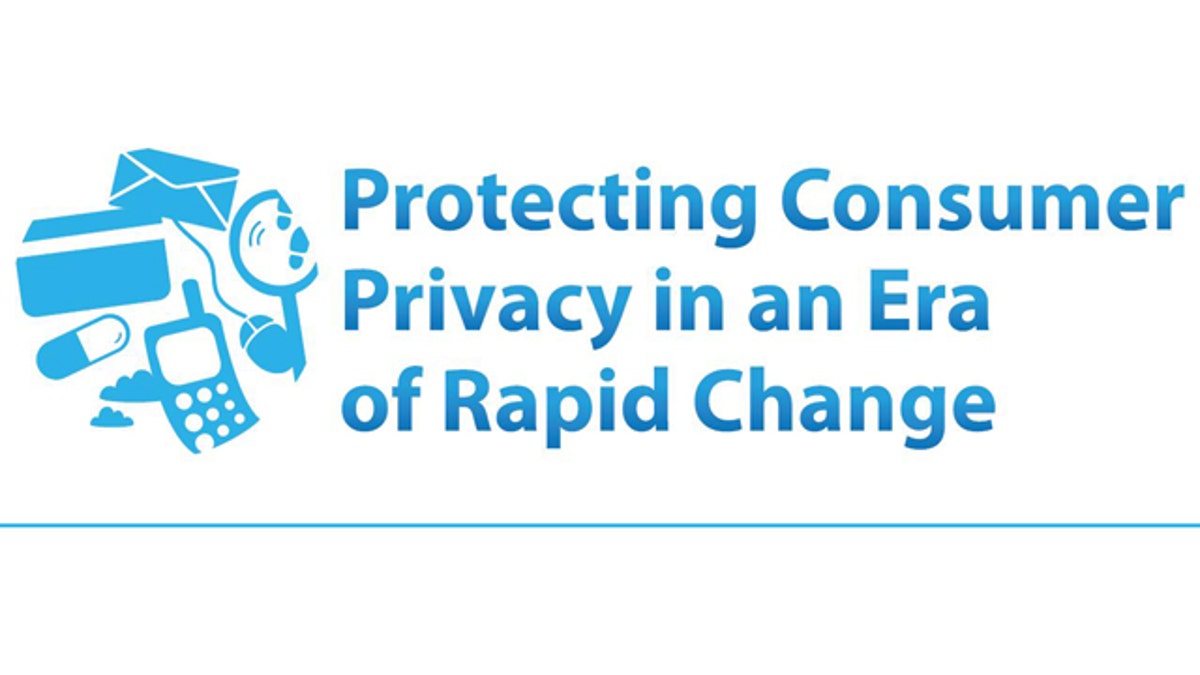
The cover of an FTC report on online privacy that calls for the creation of a "do not track" button for the Internet.
What have you got to hide?
That is the typical response from marketers and many technology firms whenever the question of privacy and online tracking arises. It's a standard intimidation tactic: You must be some kind of criminal if you're worried about what we do with your personal information.
Right.
Fortunately, consumers are beginning to wise up to the very serious issues involved in how our information is being used. Those concerns are -- in small ways -- reflected in recent moves by the two leading Web browsers. Mozilla's forthcoming Firefox 4 and Microsoft's brand new Internet Explorer 9 have added features intended to curb some of that tracking. Even Google, one of the biggest proponents of tracking on the Web, recognizes that the practice can create problems; it now offers a way to block some sites using its Chrome browser.
In case anyone still is skeptical about the dangers of letting people freely track your moves online, here are some points to consider. The information being tracked includes what you read (Fox News or The New York Times; the schedule for your local church or synagogue), what you buy (books about nuclear physics or gun maintenance), and where you go (a coupon used for Olive Garden or a local hotel). Furthermore, they also know where you bank, what kind of car you own, and where your children go to school. They know whether you're worried about your son having ADHD and that your daughter has trouble in English.
The increased use of smart phones and the (slow) introduction of smart power grids makes the information even more detailed. It's possible to know where and what you're doing at any given time based on the location and activity of your phone (John is in Walmart looking for plumbing supplies). And smart grids will even tell someone when you are home and what room you may be in (the garage door closed and the power is on in the family room).
"Now it's about your real life, not just your virtual life," emphasizes Gary Kovacs, the CEO of Mozilla, the non-profit entity behind Firefox. "That makes the stakes really high."
Put another way, privacy is just one side of the online tracking coin. The other side is personal security. The fact that information about your children, your specific whereabouts, and personal net worth can be collected by unregulated companies and individuals to do with as they see fit puts you and yours at risk. That tracking information can be used not just to serve up ads, but also to get your Social Security number and other details for nefarious means. (Incidentally, it's National Fraud Prevention month.)
A cursory look at most popular Web pages reveals that more than a dozen sites are tracking your moves at any given time. There are the usual suspects, such as Google, Facebook, and Doubleclick, as well as lesser known entities, such as Revenue Science and Baynote Observer. These companies claim to watch individuals' behavior on specific Web pages and cross reference it with other Web behavior -- and then sell the information to clients. Chartbeat brags that it can watch in real-time what people are doing on a site, where they are, where they're coming from.
How creepy can this monitoring get?
Kovacs recalls an early version of Google Mail. It could monitor your keystrokes so that as you wrote a message it would serve up ads based on what you typed. "It was as if you were talking to your wife about buying a new car, and then into your living room walked a used car salesman," he remembers with a shudder.
Unfortunately, much of this nascent business is as yet unfettered. So-called "Do Not Track" legislation has been proposed by Rep. Jackie Speier, D-Calif., but it is not a top priority in the current House. When such regulations might be enacted -- if ever -- is anyone's guess.
In the meantime, here are some steps you can take:
-- Use a program like Ghostery to block tracking sites, or at least make you aware of who's following you.
-- Set your browser to clear cookies every time you shut it down, and shut it down often. Also set it to delete your browsing history.
-- Mobile phone security company Lookout recommends that if you're going to avail yourself of a public Wi-Fi connection, such as those in hotels or coffee shops, only use it for innocuous browsing. Don't use it to purchase anything or log in to any Web site with a password.
-- Use a program like Tor. It attempts to prevent sites from tracking your movements and is used by journalists connecting with whistle-blowers and dissidents in politically compromised countries.
-- Michael Barrett, the chief information officer of online financial institution PayPal, recommends that people use an updated Internet browser -- such as Internet Explorer 9 or Firefox 4 -- that blocks fraudulent websites.
Even if you follow all of these steps, recognize that they are only partial measures. Until there is agreement about what's legal to track and what's not, assume the worse. It's not just a funny feeling. You are being watched.
